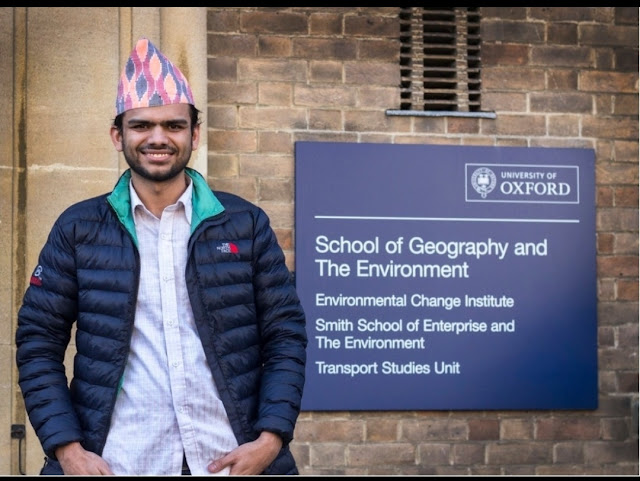 |
| Sagar Dhakal, an alumnus of Oxford, is running for the parliament from the home constituency (Dadeldhura) of incumbent prime minister Sher Bahadur Deuba |
The local level election of Nepal six months
back had sprouted the waves of independent candidates which was later
epitomized with the win of Balen, Harka Sampang and Gopal Hamal. The trio
represented the mid, the east and the west Nepal respectively. The
reminiscences of these victories have now bounced in the different spectra in
today's federal and provincial elections with the formation of a plethora of political
parties and willingness of many independent candidates. In this series of
political development, two-fold questions may arise: does Sagar Dhakal's
candidacy stand out as a unique entity itself or did it just come as a
continuum of the past election? Let's untie the folds of this two-edged
argument here.
We can say that the aftermath of local
elections is wholly balenized or harkified in the sense that the mainstream
political debate always focused upon the actions, maneuvers and
announcements of Balen and Harka. In one way they almost overshadowed the authoritarian political syndicate of major political parties through national news coverage, social media limelight and public discussion.
The charm of their independence really has echoed in this election seeing at
the number of independent candidacies. Some of us may surmise that Sagar Dhakal
happens to be one of those echoes rippling at the western edge of the country. True
that the reverberating craze of independence and dwindling hope on major
parties both has amplified the hearts and guts of free candidates but some of
them including Sagar might categorically not fit in the similar wavelengths. Why because Sagar's plan
was not wedged upon the result of local election but far before that. We may go
back to one of Sajha Sawal's question-answer sessions where Mr Dhakal queried then
premier Sher Bahadur Deuba on when Mr Deuba was renouncing politics. The
premier severely berated Mr Dhakal saying his inquiry was off-limits. Whilst it
can be a deliberate revenge on a personal level as he challenged Mr. Deuba's
belief in the impossibility of any candidate to be an Oxford −or such like
graduate to be running for the prime minister of Nepal. He seems to first graduate and then
come for a field battle in the federal election against Deuba, a fifth timer
prime minister. Nevertheless, he refutes this assumption and says that his
political conscience was ignited before the BBC event.
By whatsoever means, filing for the candidate
as the opponent of the most powerful person in the country is itself an
extraordinary deed which takes a zeal and courage that one can't imagine.
Looking into the intramural party politics of Nepali Congress the voice of
youths has long been subdued because the old cult has consistently led the
cadres. Even though they assert that Nepali Congress practices pure democracy
and that theirs is a mass-based party, they have been ruled by the same faces
for decades and by today's prediction the trend will still continue. If Sagar
Dhakal who comes from the grassroots and out of nowhere can defy Deuba, a long
time chairman of NC and a many-time state head, why can't Gagan Thapa, Bishwo
Prakash or Pradeep Poudel having known that they have already come a long way
from the ground zero? Sagar Dhakal has very clearly and loudly inflamed the youthful and willful souls of Nepali congress to challenge and vote out Deuba sooner the
better. The same message propagates well to other major parties led by KP
Sharma Oli. Pushpa Kamal Dahal, Upendra Yadav and many more where they
exclusively steer as party head till the day they die.
'It's time for a change and today's the very day' is the punching message fired by Sagar Dhakal's candidacy. His bold run for the parliament has also sprinkled the hope to the frustrated and ever vanishing youngsters of Nepal that seeing everything and not doing anything are not the options available for us now. We can better be a change-maker than vanish abroad. It is high time that youth came into politics and hit hard.
It is not difficult to understand that his blatant statement that he will be the youngest prime minister of Nepal is near impossible. But sure enough, we should accept, salute and culture the rebellious psyche of our nation that implicitly has brought the political enlightenment of change and highlighted the possibility that every next citizen can have a hope to be at the zenith inasmuch as what it takes is only a leap of courage, and believing in oneself.




0 Comments